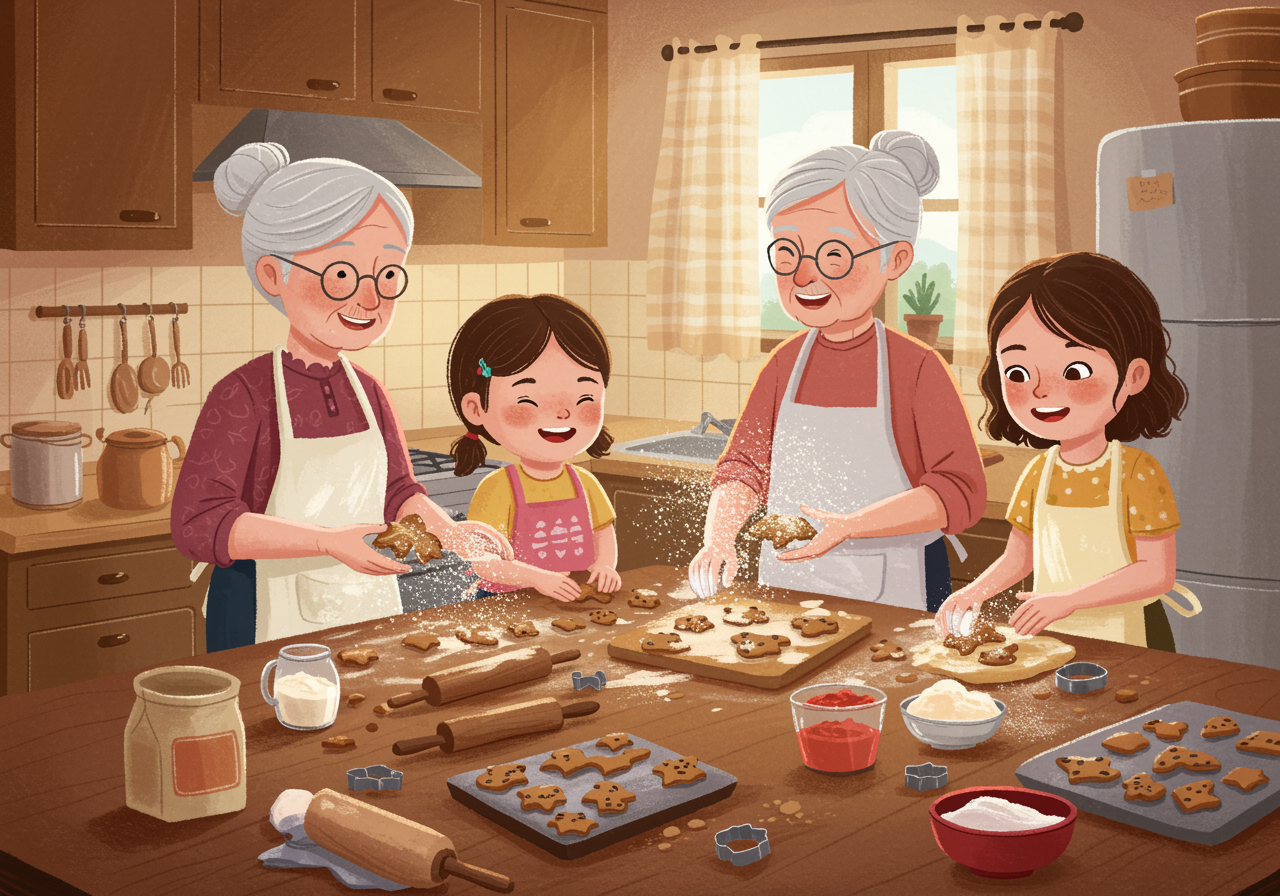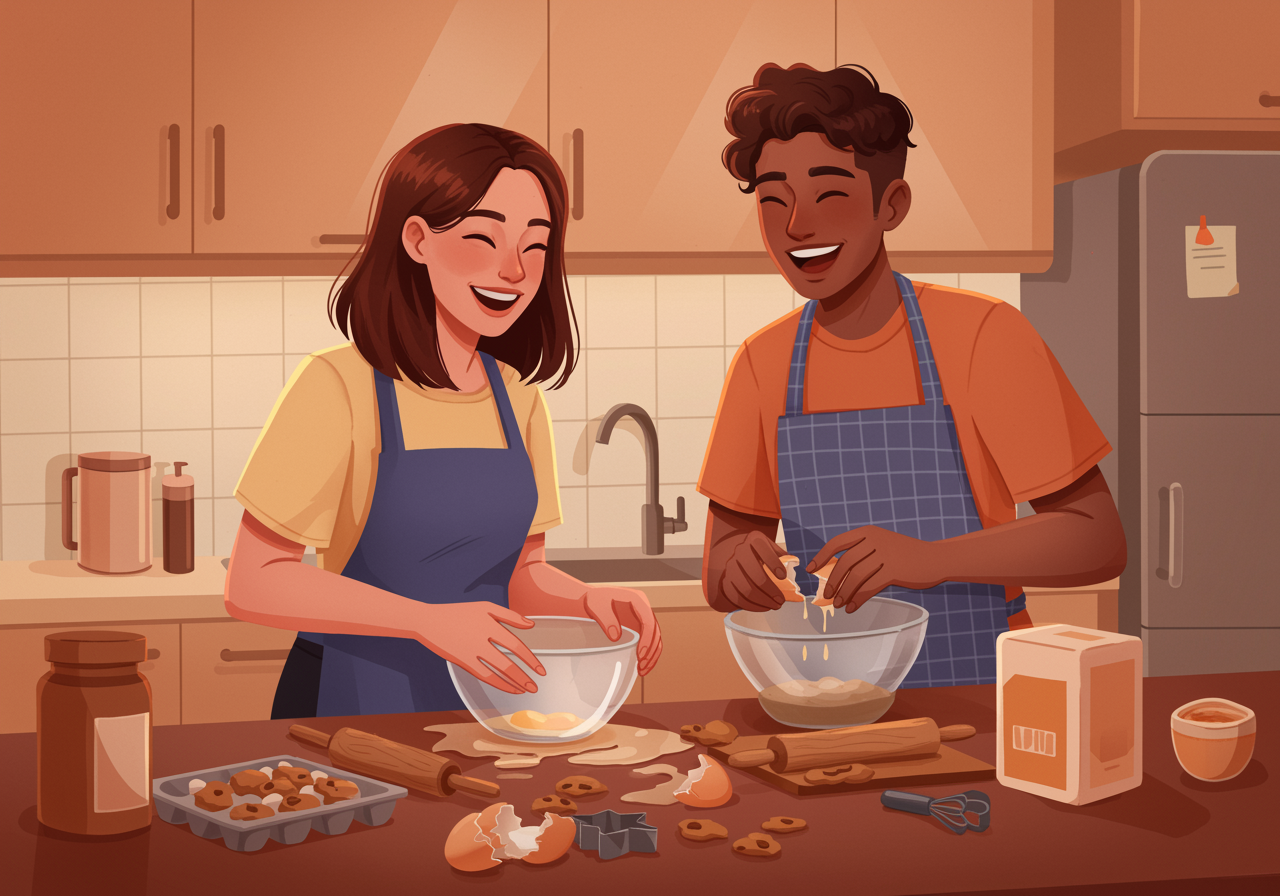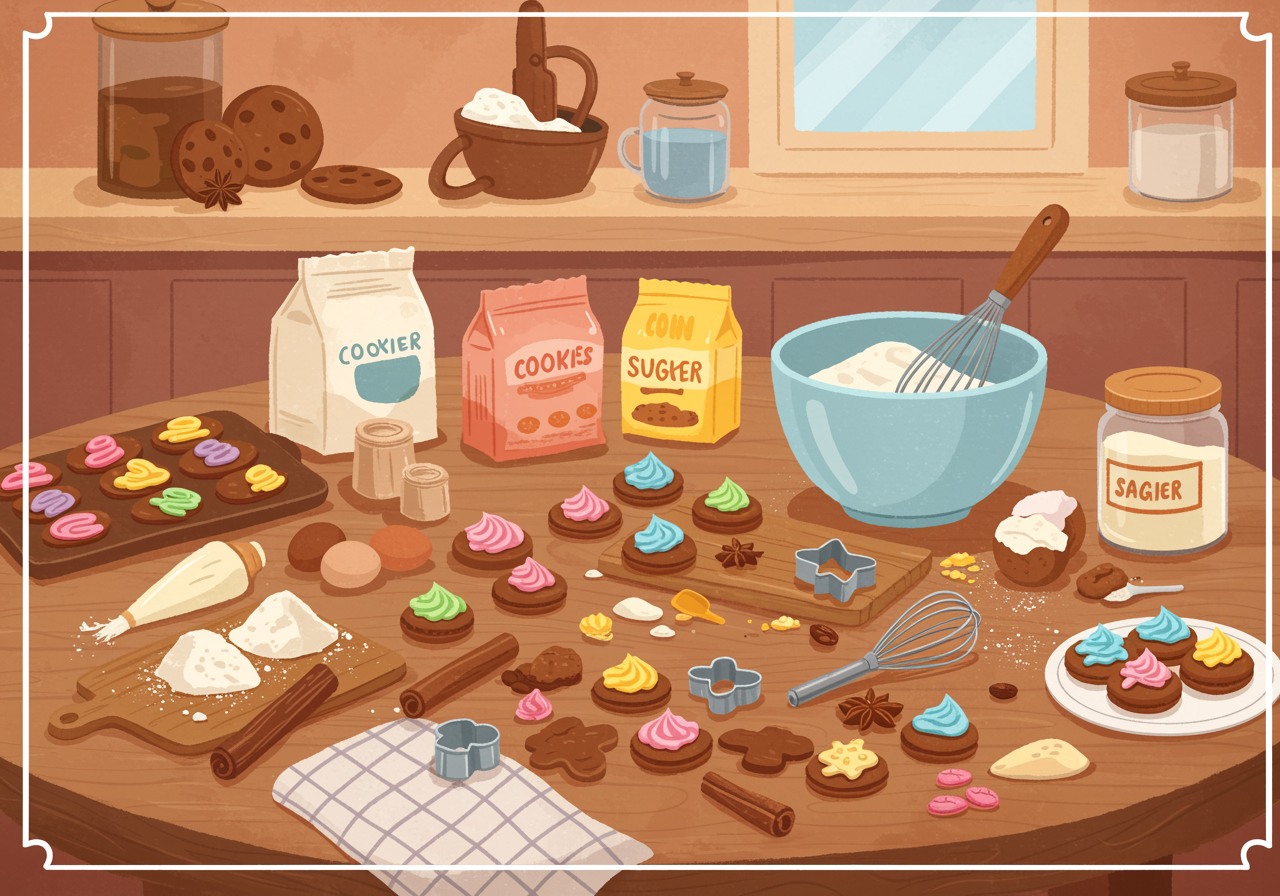The Secret Ingredient: How Cookie Time Creates Connection Magic

Discover why flour fights and frosting fun build stronger bonds than any superhero team-up
Explore how simple shared activities like baking cookies become powerful relationship builders that create lasting memories and deeper connections with the people you care about most.
Overview
Think about your favorite memory with a friend or family member. Chances are, it wasn't sitting quietly watching TV – it was probably doing something together! When we share activities like baking cookies, building projects, or even cleaning up messes, something amazing happens in our brains. We create what scientists call 'shared experiences' that act like invisible threads connecting us to other people. These moments work better than any social media post or text message because we're fully present with each other, working toward the same goal, and creating memories that stick around forever.

Understand in 30 Seconds
Get up to speed quickly
- Shared Work = Shared Bonds: When we do activities together, our brains release feel-good chemicals that make us trust and like each other more. It's like a natural friendship booster shot!
- Mistakes Become Memories: The burnt cookies and flour explosions often become the stories we laugh about years later. Imperfect moments create perfect connections.
- Focus Creates Connection: Without phones and distractions, we actually see and hear each other. This focused attention makes people feel valued and understood.
- Team Goals Build Trust: Working together toward something fun (like delicious cookies) teaches us we can count on each other, which strengthens our relationship foundation.
Real Life Scenario
Situations you can relate to
Imagine your friend Alex comes over feeling bummed about a rough day at school. Instead of just talking about it, you decide to make cookies together. At first, Alex is quiet, but then you accidentally crack an egg on the counter instead of in the bowl. You both start laughing, and suddenly Alex is telling you about the embarrassing thing that happened in math class. As you measure flour and mix ingredients, the conversation flows naturally. By the time the cookies are baking, Alex feels better and you both feel closer. What happened here? The activity gave you both something to focus on besides the problem, your hands were busy so talking felt easier, and you created something delicious together. Plus, every time Alex smells chocolate chip cookies in the future, they'll remember this moment of feeling supported and cared for.

Role Play
Spark a conversation with “what if” scenarios
What if you wanted to get closer to a grandparent who seems hard to talk to?
- Role play: Role-play asking them to teach you their favorite recipe. One person plays the shy grandchild, the other plays the grandparent who lights up when asked to share their cooking wisdom.
What if your sibling was upset about something but wouldn't talk about it?
- Role play: Practice suggesting a fun cooking project together. Act out how to make the invitation feel exciting, not like you're trying to force them to talk.
What if you wanted to make new friends but felt nervous about starting conversations?
- Role play: Role-play organizing a cookie decorating party. Practice how sharing a fun activity makes getting to know people feel more natural and less scary.
FAQs
Frequently asked questions people want to know
Why do shared activities work better than just talking?
Our brains are wired to bond through doing things together. When our hands are busy and we're focused on a task, conversations happen more naturally and we feel less pressure to say the 'right' thing.
What if we're not good at cooking or the activity goes wrong?
Perfect! The mistakes and silly moments often create the strongest memories. It's not about being good at something – it's about experiencing it together and laughing about what happens.
How often should we do special activities to strengthen relationships?
Quality matters more than quantity. Even one meaningful shared experience per month can make a huge difference. The key is being fully present and enjoying the process together.
Examples in the Wild
See how this works day to day
- Research from UCLA shows that families who cook together have stronger communication and children who are more confident and willing to try new things. (UCLA Center for Everyday Lives)
- A 2023 study found that teens who regularly participate in hands-on activities with parents report feeling more understood and supported during stressful times. (Journal of Family Psychology)
- The Great British Bake Off has become popular worldwide partly because viewers connect with watching people support each other through challenges, showing how shared activities build empathy. (BBC Cultural Impact Studies)
- Military families often use cooking together as a way to reconnect after deployments, with the Department of Defense recommending shared activities as relationship rebuilders. (U.S. Department of Defense Family Programs)
In Summary
What you should know before you start
- Shared activities like baking trigger brain chemicals that naturally strengthen our bonds with others
- Working together toward a fun goal builds trust and teaches us we can rely on each other
- Focused time without distractions helps people feel truly seen and valued
- The imperfect, messy, and funny moments often become our most treasured memories
Pro-tip for Parents
You got this!
If your teen seems resistant to 'forced family time,' try suggesting they teach YOU something they're good at instead. Maybe they're amazing at making TikTok-worthy treats or have a secret talent for pancake art. When kids feel like the expert, they're more likely to engage enthusiastically. Remember, the goal isn't perfect cookies – it's connection. Embrace the chaos, laugh at the mistakes, and focus on enjoying each other's company rather than achieving Instagram-worthy results.

Keep an Eye Out For
Find these examples in everyday life
- Holiday cooking shows or baking competitions that you can watch together and then try recreating some techniques
- Local cooking classes or community center workshops where families can learn new skills together
- Times when your child is stressed or going through challenges – these are perfect opportunities to suggest a fun cooking project as a gentle way to connect
Explore Beyond
Look up these related research topics
- How building things together (like furniture or crafts) creates similar bonding experiences
- Why family traditions and rituals are so important for creating lasting connections
- How different cultures use food and cooking to strengthen community bonds and relationships